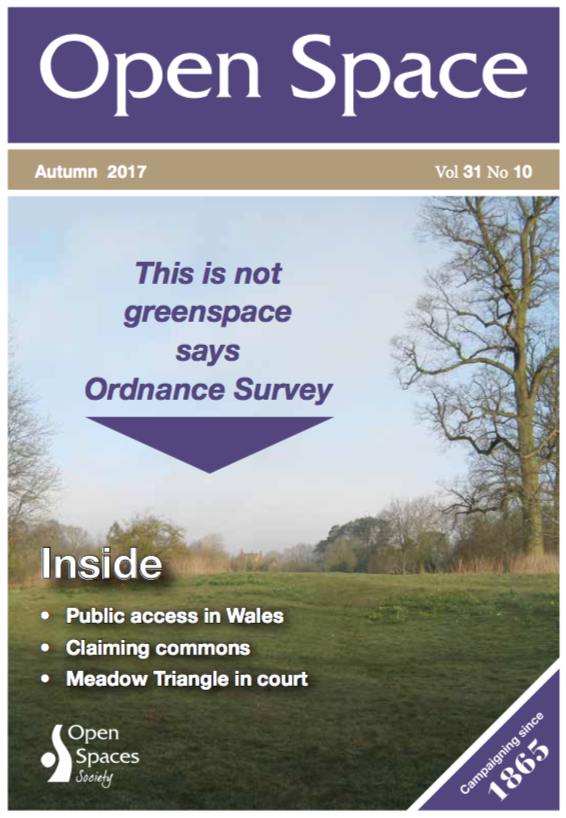 The Open Spaces Society, Britain’s oldest national conservation body, has called for the government’s adviser, Natural England, to do more to champion public paths.
The Open Spaces Society, Britain’s oldest national conservation body, has called for the government’s adviser, Natural England, to do more to champion public paths.
In her ‘Opinion’ in the autumn issue of the society’s magazine, Open Space (pdf attached, page 1), general secretary Kate Ashbrook recalls that Natural England’s predecessor body, the Countryside Commission, recognised that ‘the national system of 120,000 miles of rights of way [in England] is the single most important means of access to and enjoyment of the countryside’.
Writes Kate: ‘The Countryside Commission and its successor the Countryside Agency put money and resources into local authorities and voluntary organisations to work on paths. The condition of the paths improved. The rights-of-way network is as important now as ever before, yet Natural England appears to have fewer than two full-time staff working on local paths.
‘Natural England is doing an excellent job in creating the coastal route and adjoining access land around England, but in our experience its statutory purpose to promote access and open-air recreation is being sidelined in favour of its regulatory conservation and biodiversity functions.
‘Natural England is being subsumed into the Department for Environment, Food and Rural Affairs (Defra). The arm’s-length adviser is becoming a government mouthpiece.
‘We need Natural England to lead the charge for post-Brexit funding for public recreation as well as wildlife habitats; there is great potential here to create new paths and access opportunities,’ says Kate.
The society has made these submissions in evidence to the House of Lords Select Committee which is examining the Natural Environment and Rural Communities Act 2006; this established Natural England from three predecessor bodies: the Countryside Agency, English Nature and part of Defra.
The Open Spaces Society was founded in 1865 and is Britain’s oldest national conservation body. It campaigns to protect common land, village greens, open spaces and public paths, and people’s right to enjoy them.
Also in this issue of Open Space:
- Report from international commons conference in Utrecht (page 2);
- Project to rescue lost commons (page 5);
- The society responds to the Welsh Government’s consultation on the future of access and recreation (page 6);
- Muddle over Ordnance Survey’s mapping of greenspace (page 8).The Open Spaces Society was founded in 1865 and is Britain’s oldest national conservation body. It campaigns to protect common land, village greens, open spaces and public paths, and people’s right to enjoy them.





Recent Comments